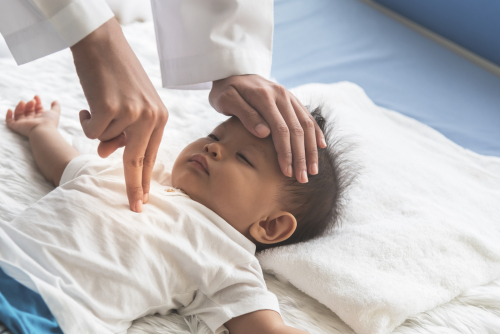
Infant CPR is very similar to adult CPR, however, there are a few key differences. “Infant” refers to anyone from birth to age one. People this age are much smaller than children and their bones are even weaker. Both of these have to be taken into consideration when carrying out CPR. As always, once identified that CPR is required, make sure that someone has called the Emergency Medical Services. This page will cover the differences between adult CPR and infant CPR. Read up on the normal process of CPR for adults.
The Main Differences
First of all, when you open the airway to check for breathing, do not tilt the head of the infant too far back. The infant airway is like a hose – if it is bent too far either way, it will kink like a garden hose. This will end up blocking the airway, so you need to make sure the head is kept straight. This is called a neutral position.
Also, the correct way to carry out chest compressions is different. Instead of using 2 hands (adult CPR) or 1 hand (child CPR), instead, you only use 2 fingers. You still place it in the same place, you just do not need the force of two hands. As well as this, you do not need to press in as far as you would with an adult. In proportion, it is the same, however, you do not want to end up crushing the heart by pushing in extremely far. You want to be aiming for about a third of the depth of their chest. Of course, this is dependant on the size of the infant. When carrying out rescue breaths, remember that the lungs of the infant will be much smaller. Therefore, make sure not to breathe an adult-lung-sized breath into them.
Unlike either adult or child CPR, before going to call for an ambulance if you are alone, perform one minute of CPR. The aim here is to resuscitate the infant before they deteriorate further. After calling for the ambulance, administer 5 rescue breaths immediately. Then you can commence 30 compressions to 2 breaths.
For more information on training courses, visit our “Courses” page which also includes our First Responder and First Person on Scene (FPOS) Courses. If you have any queries, don’t hesitate to contact us via our website or call us on 01206 805359.
